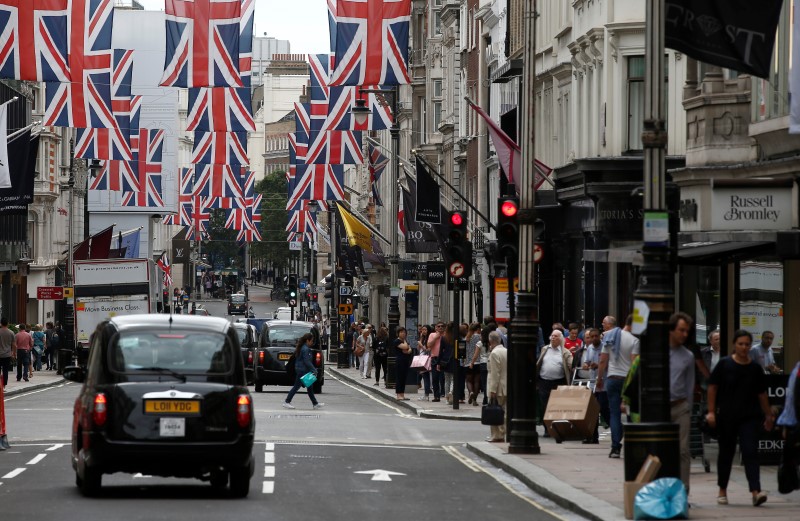By David Milliken
LONDON (Reuters) - British retailers suffered their sharpest fall in sales in four years after last month's vote to leave the European Union, raising doubts about the ability of consumers to stave off a Brexit recession.
Official figures earlier on Wednesday showed the economy as a whole grew fairly robustly in the run-up to the vote. But most economists are expecting a sharp slowdown as businesses and consumers retrench after the referendum shock.
The Confederation of British Industry said sales fell sharply between June 28 and July 14 and retailers cut orders with suppliers by the most since the 2008-09 financial crisis.
"It's a bad start," HSBC economist Elizabeth Martins said. "If you are looking for a relatively resilient consumer as we are then it's not particularly encouraging."
The Bank of England is expected to cut interest rates next week for the first time since 2009 and Chancellor Philip Hammond reiterated on Wednesday that the government was ready to support the economy as it went through a "period of adjustment".
Sterling extended losses slightly to hit a day's low against the U.S. dollar after the CBI data, though the industry lobby warned against drawing too strong conclusions from the numbers.
"While conditions in the retail sector have weakened, we should be careful about reading too much too soon, as consumers were likely to err on the side of caution in the immediate period following a vote to leave the EU," CBI chief economist Rain Newton-Smith said.
The CBI data represents an early gauge of how the retail sector has fared since the unexpected result of June 23's vote. Surveys of manufacturers and services firms last week suggested the economy was shrinking at the fastest pace since 2009.
The numbers cover the period after the June 23 vote when the government was thrown into chaos by the "Leave" vote and the announcement by David Cameron that he would resign as prime minister.
The CBI said its retail sales volume index for July fell to -14 from +4 in June, its lowest since January 2012. Expected sales for August were also the lowest since then.
Orders placed with suppliers fell at the sharpest rate since March 2009 and were expected to decline rapidly in August too.
Low inflation and high employment levels might help sales bounce back in the short run, but in the medium term the big fall in sterling would push up prices, the CBI said.

"What businesses and consumers need now is calm and decisive leadership, a clear timetable and a plan for negotiating the UK's future outside the EU," Newton-Smith said.